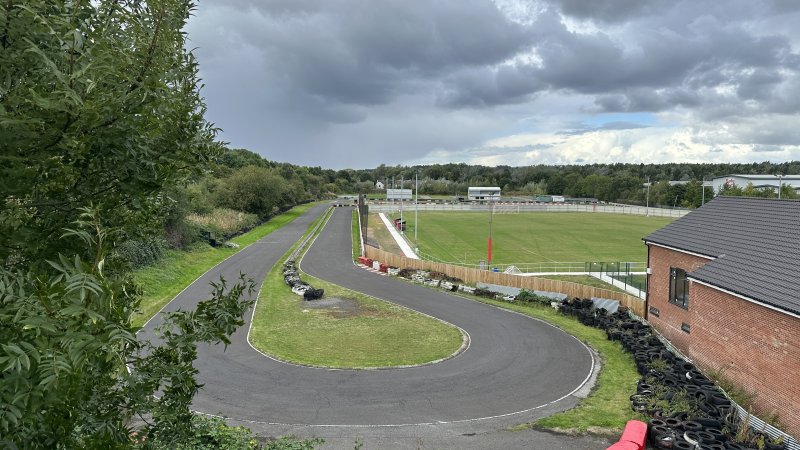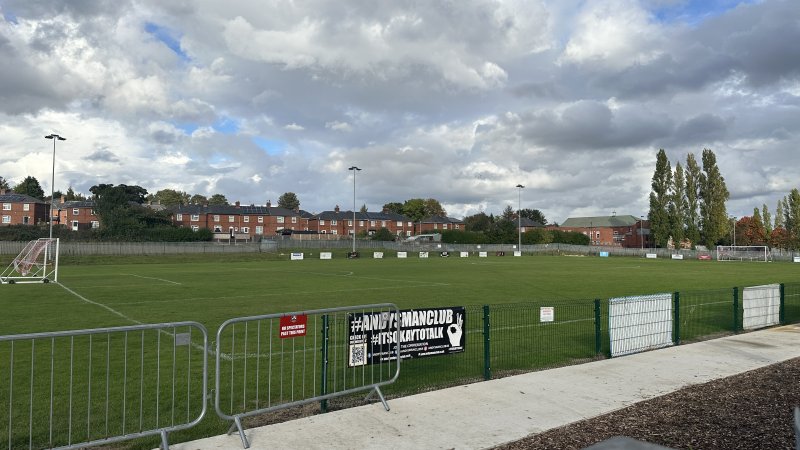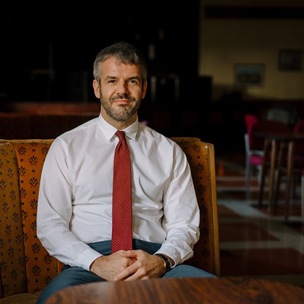MY most haunting memory of 2024 is something that will stay with me for the rest of my life.
It’s a Thursday in July, I’ve just finished shopping at Morrisons with Janet, when a woman in her 50s enters the store and starts shouting. Her screeching voice reminds me of the Wicked Witch in The Wizard of Oz, and her language is industrial.
“Gerrim bl**ding shifted,” she screams at the shop assistant. “He’s outside begging. Shunt be allowed. We dunt want pestering wi’ dirty animals like that!”
“I’d sooner have to walk past him than you, Mrs,” I say out loud.
No one else says a word. Perhaps they agree with the woman, or maybe they don’t want to be personally involved in the unfolding public drama. I then witness the female security guard walking over to diffuse the situation.
A few seconds later, Janet joins me and asks for my keys so she can unload her shopping into my car.
“Did you hear that woman?” I ask.
“No. Why?”
“I’ll tell you later but, in the meantime, do me a little favour. Slip that homeless guy, who’s sat near the entrance, a pound, will you?”
“Of course.”
On my way out I stop to have a word with the female security guard and I’m anticipating a quarrel:
“We’re not all fascists in Barnsley, you know. That vicious woman is a disgrace.”
“That’s exactly how I feel” she replies, taking the wind out of my sails. “She was only one shade cleaner than him, anyway, and the poor lad is someone’s son. But I’ve still got a job to do.”
As I pass the down-and-out fellow on my way back to the car, he says: “Mr Steele? Is that you? I thought it was you when you first went in the store.”
I instantly see past the tousled hair and grimy features to an old familiar face.
“It’s me, John Hunt (not his real name). Remember me? You once taught me.”
“Remember you? How could I forget?” And my thoughts race at the speed of light: Hmmm. John Hunt. Might have been Richard Newman Primary or, more probably, St Hilda’s. John Hunt – happy, pleasant, friendly, pleasure to teach. Now he’s ‘spoiling’ our public spaces in a desperate effort to survive.
“Well, I was going to ask how life’s treating you, but the answer’s pretty obvious,” I say, as he reaches out to shake my hand. “Listen mate, I’ve got some frozen stuff in my carrier so I can’t talk but here’s a couple of quid to help you out.”
“Oh, thank you, Mr Steele. Thank you,” says he. “I’ll not forget this.”
And on the way back to my car I’m completely stunned. It’s like I’ve woken from a horrific nightmare. What the hell has happened to John? How has he turned into a dirty, homeless, beggar? What could possibly have gone so wrong that he should sink to such self-humiliation? Is it drugs? Crime? Mental ill-health?
I pack my shopping into the car boot and then sit behind the steering wheel, in a daze, unable to speak.
“What’s the matter? What is it?” asks Janet.
Eventually, I tell her the whole tale and say: “I feel like driving back round there now and giving him a £20 note.”
“Go on then!”
So, I drive round to the entrance but John is no longer there – only his blanket remains. I continue circling the car park but he’s nowhere to be seen, so I exit and head home.
To think that it’s come to this: We live in the fourth richest country in the history of the world. It’s a world where the boss of Thames Water gets a bonus of £195,000 (not pay, but a bonus) for filling our rivers and seas with sewage, while the homeless exist in misery. Jeez!
For the rest of the day I’m haunted by the powerful words from a poem by Robert Graves, about a boy’s encounter with a ghost:
“Oh, even to tell it now/My courage ebbs/His face was clay, mother/His beard, cobwebs.”
I wonder how many will sympathise with John and how many will rush to blame him for his awful predicament?
Things must change.



























